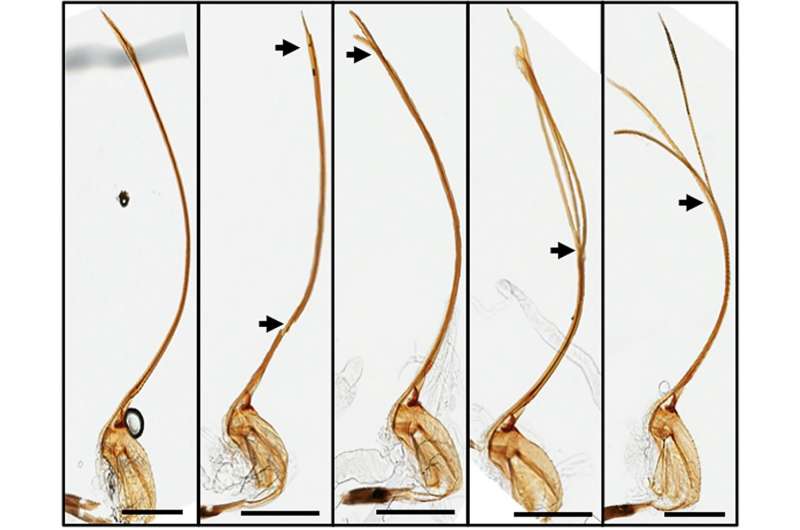ISS research shows spaceflight affects tumor-bearing fruit fly hosts and their parasites

Like humans, fruit flies (a model organism for spaceflight research) also exhibit immune system dysfunction in space. Despite decades of studies on fruit flies and wasps, little was known about how their immune systems interact with natural parasites in space. Drosophila parasitoid wasps modify blood cell function to suppress host immunity.
In this spaceflight (the Fruit Fly-03 Lab flown to the ISS on SpaceX-14), naive and parasitized ground and space flies from a tumor-free control and a blood tumor鈥揵earing mutant strain were examined. The study is in iScience.
Surprisingly, the flies without tumors were more sensitive to space than the flies with tumors. Spaceflight increased immune gene activity and made tumors grow more in the flies. The wasps remained harmful in space, but some developed inheritable physical changes. These changes included "aurum" (altered wing color and veins) and "kona" (altered wing shape). Female wasps with two copies of the "kona" mutation could not lay eggs because of defective egg-laying organs.

This study will improve our knowledge of how parasites and hosts interact. The results show that we need to study more types of organisms, including plants and their natural parasites, in space. This will help us learn more about how hosts defend themselves and how dangerous parasites can be in space, which is important for astronaut health.
Gene expression data from fruit flies () and two types of wasps ( & ) are publicly available on NASA's Open Science Data Repository. This data is available for anyone to use and compare with other spaceflight studies.
More information: Jennifer Chou et al, Drosophila parasitoids go to space: Unexpected effects of spaceflight on hosts and their parasitoids, iScience (2023).
Journal information: iScience
Provided by NASA



















